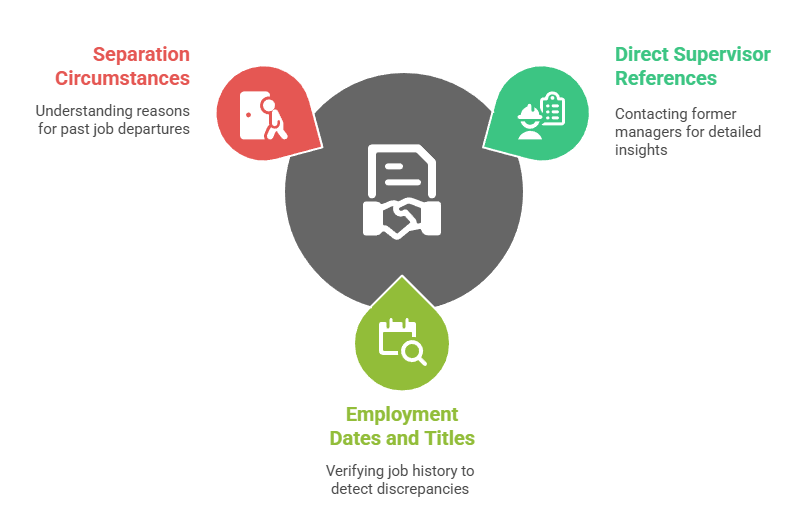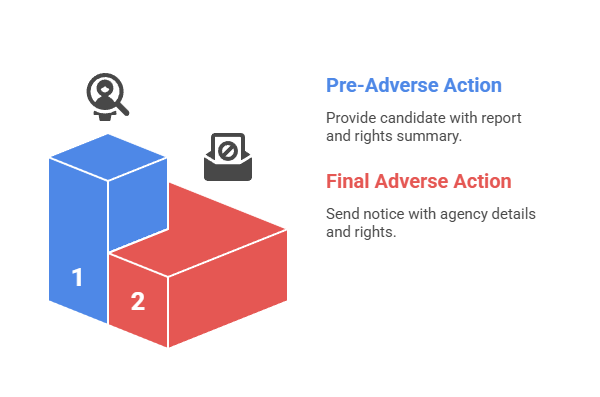Boutique hotel background checks are essential for protecting your property's reputation and guest safety while maintaining compliance with federal and state hiring regulations. Small hotel operators can implement thorough screening processes without breaking the budget by leveraging technology, understanding legal requirements, and creating scalable verification systems that grow alongside their business. Employment screening laws vary significantly by state and locality, so consult with qualified employment law attorneys to ensure compliance with applicable regulations.
Key Takeaways
- Boutique hotels face unique screening challenges where each employee directly impacts guest experience, making thorough background verification critical for maintaining brand reputation and security.
- Basic background screening packages for small hotels typically cost $25-$75 per candidate, with comprehensive checks ranging from $50-$200 depending on position sensitivity and required verification depth.
- The Fair Credit Reporting Act applies when employers use consumer reports for employment purposes, requiring proper disclosure, written consent, pre-adverse and final adverse action procedures, and maintaining confidentiality of consumer reports.
- Criminal convictions generally have no federal time limit for reporting under FCRA, though many states impose stricter limitations—California limits most conviction reporting to seven years while New York requires case-by-case analysis.
- Employment verification and reference checks remain the most cost-effective screening tools for boutique properties, revealing work ethic, reliability, and guest service capabilities that criminal checks cannot detect.
- Establishing tiered screening protocols based on position type allows budget optimization while ensuring high-risk roles like front desk staff and housekeepers receive appropriate scrutiny.
- Digital screening platforms designed for small businesses can reduce turnaround time from 7-10 days to 2-3 days while maintaining accuracy and compliance documentation.
- EEOC guidance recommends individualized assessments rather than blanket criminal history exclusions, considering offense nature, time elapsed, and job relevance to defend against discrimination claims.
Understanding Background Check Requirements for Boutique Hotels
Small hotel operators must navigate complex federal and state regulations while balancing thoroughness with budget constraints. The hospitality industry presents unique security considerations since employees access guest rooms, personal belongings, and sensitive payment information daily. Strategic screening approaches protect both guests and your business reputation while ensuring compliance with evolving employment laws.
Legal Compliance Framework for Hotel Hiring
The Fair Credit Reporting Act governs the use of consumer reports for employment purposes, including background checks obtained through consumer reporting agencies. This applies whether you use third-party screening services or directly access databases that qualify as consumer reporting agencies. Boutique hotel owners must provide clear written disclosure that a background check will be conducted, obtain signed authorization before ordering reports, and follow specific two-step adverse action procedures if declining employment based on screening results.
State and local laws often impose additional restrictions beyond federal requirements. As of 2025, 37 states and over 150 cities and counties have enacted "ban-the-box" laws that limit criminal history inquiries on initial applications. California Labor Code §432.7 prohibits asking about arrests not resulting in conviction. New York Correction Law Article 23-A requires employers to consider eight specific factors—including rehabilitation evidence and time since offense—before denying employment based on criminal history. Jurisdictions like Massachusetts, Philadelphia, and Los Angeles implement additional protections for candidates with criminal records.
The EEOC's guidance strongly recommends individualized assessments rather than blanket criminal history exclusions. This recommendation helps employers defend against potential discrimination claims under Title VII. Consider the nature of the offense, time elapsed since conviction, and relationship to job duties involved. Hotels accessing fingerprint-based FBI checks for certain positions face additional compliance obligations, though most boutique properties rely on commercial databases.
Industry-Specific Screening Considerations
Hospitality positions present elevated risk profiles compared to many other industries. Front desk personnel handle credit card information and access property management systems containing sensitive guest data, creating potential liability under payment card industry standards. Housekeeping staff enter occupied rooms and encounter valuable personal items. Maintenance workers access master keys and mechanical systems throughout the property.
A 2024 American Hotel & Lodging Association study found that 78% of travelers research hotel safety practices before booking. Independent properties lack the brand recognition and legal resources of major chains, making proactive risk management through comprehensive screening essential. Guest safety incidents can permanently damage a boutique hotel's reputation, particularly for properties relying on online reviews and word-of-mouth marketing.
Essential Components of Boutique Hotel Background Verification
Effective hotel staff background verification balances thoroughness with practical budget limitations. Understanding which screening components provide the most value allows strategic resource allocation. Not all verification methods deliver equal returns on investment.
Criminal History Searches and Database Limitations
County-level criminal searches form the foundation of reliable background verification. Most convictions are recorded at the courthouse where prosecution occurred. National criminal databases marketed as comprehensive solutions actually compile records from various sources with significant gaps—the FBI estimates that these databases miss 30-40% of existing criminal records.
Under FCRA, criminal convictions generally have no federal time limit for reporting, while non-conviction records such as arrests without disposition are typically limited to seven years. However, many states impose stricter limitations that provide greater protection to candidates. California limits most conviction reporting to seven years. New York requires individualized consideration under Article 23-A regardless of conviction age. Employers must always follow the stricter state-specific laws that apply in their jurisdiction.
Sex offender registry searches are strongly recommended for positions involving guest contact, property access, or work with vulnerable populations. These searches are publicly available and not subject to FCRA restrictions. Federal criminal searches are necessary only for positions involving federal property access or when candidates have government employment history.
Employment and Education Verification Strategies
Previous employment verification yields insights that criminal checks cannot provide. Work history reveals reliability, guest service skills, and reasons for separation. Boutique hotel hiring managers should require 3-5 years of employment history and personally contact at least two previous hospitality employers when possible.
Key verification priorities include:

- Direct Supervisor References: Contact former managers who can discuss work ethic, attendance, guest interaction skills, and rehire eligibility rather than relying on HR departments that provide only dates and titles.
- Employment Dates and Titles: Confirm claimed positions match actual roles held to detect resume embellishment or fraudulent work history that could indicate integrity concerns.
- Separation Circumstances: Understand whether departures were voluntary, performance-related, or involved policy violations that might predict future issues in your property.
Education verification matters most for management positions requiring hospitality degrees or specialized certifications. Entry-level housekeeping and maintenance roles rarely require formal education verification. Professional license verification for food handler permits or property engineer licenses can typically be confirmed through online state databases at no cost.
Cost-Effective Screening Solutions for Small Properties
Budget-conscious screening strategies enable thorough verification without overwhelming limited resources. Small hotel operators must maximize every dollar spent on pre-employment verification. Strategic approaches deliver comprehensive protection while controlling expenses.
Tiered Screening Protocols Based on Risk Assessment
Position-based screening levels optimize budget allocation while ensuring appropriate scrutiny for high-risk roles. Not all positions require the same verification depth. Matching screening intensity to security risk creates efficient resource use.
| Position Tier | Screening Components | Typical Cost | Example Roles |
| Tier One (High Risk) | County criminal checks, employment verification, reference checks, sex offender registry | $50-$100 | Front desk agents, housekeepers, night auditors, property managers |
| Tier Two (Moderate Risk) | County criminal searches, primary employment verification, professional references | $25-$50 | Breakfast attendants, laundry staff, maintenance assistants |
| Tier Three (Lower Risk) | Criminal history checks, education verification where relevant | $20-$35 | Remote administrative staff, off-site marketing personnel |
Tier One positions with guest room access, cash handling, or vulnerable population contact warrant comprehensive screening. These roles directly impact guest safety and property security. Tier Two positions with supervised guest contact require moderate screening. Tier Three positions without guest contact need basic verification appropriate to their limited access.
Leveraging Technology and Self-Service Options
Digital screening platforms designed for small businesses have revolutionized boutique hotel background verification. Cloud-based solutions allow candidates to enter their own information, upload documents, and sign consent forms electronically. These systems eliminate manual data entry and paper processing that consume valuable management time.
Modern platforms provide applicant tracking integration that automatically requests background checks when candidates reach the final interview stage. Instant access options provide immediate verification of sex offender registries and professional licenses through public database connections. Compliance automation generates required FCRA disclosure forms, adverse action letters, and consent documentation. Subscription pricing models offer monthly fees instead of per-check pricing for properties with regular hiring needs.
The Boutique Hotel Hiring Process and Screening Integration
Streamlined processes that integrate background verification into hiring workflows save time for property managers handling multiple operational responsibilities. Efficient screening integration accelerates time-to-hire without sacrificing thoroughness or compliance.
Timeline Optimization and Adverse Action Procedures
Traditional background checks require 5-10 business days for completion. Requesting screening immediately after conditional job offers rather than waiting for final hiring decisions reduces delays. Explaining the background check process during initial interviews sets appropriate expectations and allows candidates to gather necessary documentation.
FCRA requires a two-step adverse action process if you decline employment based on screening results:

Step 1 - Pre-Adverse Action: Provide the candidate with a copy of the consumer report, a copy of "A Summary of Your Rights Under the Fair Credit Reporting Act," and reasonable time (typically 5 business days) to dispute inaccurate information or provide explanatory context.
Step 2 - Final Adverse Action: After making your final decision, send a notice including the name, address, and phone number of the consumer reporting agency that provided the report, a statement that the agency didn't make the employment decision, notice of the candidate's right to dispute accuracy with the agency within 60 days, and the right to obtain an additional free copy of the report.
This documentation protects hotels if hiring decisions are later challenged. Strategic workforce planning that anticipates seasonal hiring needs allows adequate time for comprehensive screening without paying expedite fees.
Creating Consistent Evaluation Standards
Standardized screening policies protect boutique properties from discrimination claims. Written policies should specify which screening components apply to each position category and establish guidelines for evaluating criminal history that consider offense nature, conviction date, rehabilitation evidence, and job relevance. Document which verification components apply to each job category to create transparency and ensure consistent application.
Provide clear processes for candidates to challenge inaccurate information or explain mitigating circumstances before final employment decisions. Apply screening protocols uniformly across all candidates for similar roles to avoid disparate treatment claims. These documented procedures demonstrate that hotels took appropriate steps to assess candidate suitability fairly.
Independent Hotel Security Clearance Protocols
Small hotel pre-employment screening establishes security foundations that protect guests, staff, and property assets. These protections extend throughout employment relationships. Comprehensive security approaches combine initial verification with ongoing vigilance.
Ongoing Monitoring and Periodic Rescreening
Initial background checks provide snapshots of candidate history at a specific point in time. Annual or biennial rescreening for positions with master key access, cash handling, or unsupervised guest contact helps identify developing issues. Continuous monitoring services automatically notify employers when existing employees appear in new criminal records.
However, state laws vary significantly regarding employer use of post-employment criminal history. California generally restricts use of criminal records discovered more than seven years after conviction. New York requires Article 23-A analysis even for existing employees. Philadelphia, New York City, and Los Angeles have ban-the-box provisions that may apply post-hire in certain circumstances. Illinois' Employee Monitoring Act imposes notice requirements for continuous surveillance programs.
Rescreening policies should be clearly communicated during onboarding and applied consistently across similar positions to avoid discrimination claims. Consult with employment counsel before implementing continuous monitoring to ensure compliance with state-specific restrictions. The cost-benefit analysis for periodic rescreening favors boutique properties with long-tenured staff.
Internal Security Measures Beyond Background Checks
Guest safety extends beyond pre-employment screening to encompass ongoing operational practices. Key control systems that track master key distribution and room access create accountability. Security cameras in public areas and cash handling zones provide incident documentation without infringing on guest privacy expectations.
Regular training on guest privacy, data security, and theft prevention reinforces expectations that background checks alone cannot instill. Anonymous reporting mechanisms allow staff to report suspicious behavior without fear of retaliation. These complementary measures work synergistically with thorough pre-employment screening to create comprehensive security frameworks.
Managing Boutique Property Risk Management Through Verification

Hotel industry screening costs represent investments in risk mitigation rather than mere hiring expenses. These investments provide returns through reduced liability and enhanced guest confidence. Understanding the financial protection that screening delivers justifies budget allocation.
Negligent Hiring Liability and Legal Protection
Hotels that skip background checks face substantial liability when employees harm guests or fellow staff members. Negligent hiring claims arise when employers knew or should have known about an employee's dangerous propensities that caused foreseeable harm. A thorough background check creates a powerful defense by demonstrating reasonable care in employee selection, even if an incident later occurs.
While negligent hiring awards vary significantly based on circumstances, documented screening programs demonstrate reasonable care and provide important legal defenses. Background screening costs of $25-$200 per hire represent minimal expenses compared to potential liability exposure. Beyond financial damages, negative publicity from preventable incidents causes lasting brand damage particularly harmful to boutique properties relying on reputation and guest reviews.
Insurance Requirements and Medical Screening Restrictions
Commercial general liability and employment practices liability insurance policies increasingly require documented background screening programs as coverage conditions. Some carriers offer 5-15% premium discounts for hotels maintaining comprehensive screening policies. Coverage disputes may arise when claims involve employees who were not properly screened, potentially leaving hotels personally liable for incidents that insurance should have covered.
The Americans with Disabilities Act prohibits medical examinations before extending a conditional job offer. After a conditional offer, employers may require medical examinations if job-related, required for all entering employees in the same job category, and consistent with business necessity. Employers may ask candidates whether they can perform essential job functions with or without reasonable accommodation, but cannot inquire about the nature or severity of disabilities before making conditional offers.
Drug testing laws vary significantly by state, with many jurisdictions now restricting or prohibiting pre-employment cannabis testing. As of 2025, 24 states plus the District of Columbia have legalized recreational cannabis. New York, New Jersey, Montana, Nevada, and California provide explicit employment protections for cannabis use outside of work. Employers should consult legal counsel to ensure drug testing policies comply with state-specific laws before implementing screening programs.
Scaling Background Verification for Growing Boutique Chains
Scalable frameworks allow screening processes to expand efficiently as single properties grow into multi-location chains. Strategic planning during expansion prevents costly policy retrofitting later.
Standardization Across Multiple Locations
Expanding boutique brands must balance consistency with local legal variations. A centralized screening policy covering all locations simplifies administration while ensuring brand standards. Establish baseline screening requirements that apply across all locations, defining minimum verification standards for each position category.
Document state and local law variations affecting criminal history use, salary history inquiries, cannabis convictions, and ban-the-box requirements that modify standard procedures. Multi-property volume discounts from screening providers can reduce per-check costs by 20-40% once chains reach 100+ annual screenings. Enterprise agreements provide consistent service quality and dedicated account management that growing hotel groups need.
Technology Integration for Enterprise Efficiency
Applicant tracking systems with built-in background screening workflows eliminate manual processes and create audit trails demonstrating compliance. Automated adverse action letter generation ensures consistent policy application across locations. API integrations between property management systems and screening providers create seamless data flow while minimizing errors.
Reporting dashboards track screening turnaround times, costs per location, and adverse finding frequencies to identify process improvements. Compliance alerts notify administrators of changing legal requirements in jurisdictions where properties operate. These technology investments yield returns through reduced administrative time, improved compliance, and better hiring decisions.
Conclusion
Boutique hotel background checks represent essential investments in guest safety, brand protection, and legal compliance rather than discretionary expenses. Small property operators can implement thorough, cost-effective screening by understanding evolving legal requirements and leveraging modern technology platforms. The $25-$200 per-hire investment in comprehensive verification provides substantial returns by demonstrating reasonable care in employee selection and satisfying insurance requirements. Employment screening laws vary significantly by jurisdiction, making consultation with qualified employment counsel important for ensuring policies comply with applicable federal, state, and local regulations as your boutique chain scales.
Frequently Asked Questions
How much do background checks cost for boutique hotel employees?
Basic background screening packages for small hotels typically cost $25-$75 per candidate, covering criminal history searches and identity verification. Comprehensive checks including employment verification, education confirmation, and multi-jurisdictional criminal searches range from $50-$200 depending on position requirements. Volume discounts and tiered screening protocols based on position risk can reduce costs while maintaining thoroughness.
What background check components are legally required for hotel hiring?
No federal law mandates background checks for private hotel employers, though specific components may be required by state law, insurance policies, or franchise agreements. When conducting voluntary screenings, hotels must comply with Fair Credit Reporting Act requirements including written disclosure, candidate consent, and two-step adverse action procedures. State laws may restrict use of certain criminal history or other information depending on jurisdiction.
How long does the hotel background check process take?
Standard background checks require 5-10 business days for completion, with county criminal searches causing most delays as courthouses verify records manually. Digital platforms with candidate self-service capabilities reduce turnaround time by eliminating manual data entry. Expedited services can deliver results in 24-48 hours at premium pricing, though rushed screenings may sacrifice accuracy.
What criminal history disqualifies candidates from boutique hotel employment?
Federal law does not prohibit considering criminal history, but the EEOC's guidance strongly recommends individualized assessments rather than blanket exclusions. Consider the nature of the offense, time elapsed, and relationship to job duties. State laws provide additional protections—California prohibits considering most convictions beyond seven years, while New York requires case-by-case analysis under Correction Law Article 23-A regardless of conviction age.
Should boutique hotels rescreen existing employees periodically?
Periodic rescreening for positions with ongoing risk factors like master key access helps identify criminal activity occurring after initial hire. However, state laws vary significantly regarding employer use of post-employment criminal history. California restricts use of older convictions, while New York requires individualized analysis for existing employees. Consult employment counsel before implementing continuous monitoring or rescreening policies to ensure compliance with state-specific restrictions.
How do background checks protect boutique hotels from liability?
Thorough pre-employment screening demonstrates reasonable care in employee selection, creating an important defense against negligent hiring claims when employees harm guests or coworkers. Documented screening policies show that hotels took appropriate steps to assess candidate suitability. Comprehensive verification also reduces insurance premiums, satisfies policy requirements, and builds guest confidence in property safety.
What are the FCRA adverse action requirements for hotels?
FCRA requires a two-step process when declining employment based on consumer reports. First, provide pre-adverse action notice with a copy of the report, summary of FCRA rights, and reasonable time (typically 5 days) to dispute. Second, after making your final decision, send a final adverse action notice including the consumer reporting agency's contact information, statement that the agency didn't make the decision, and notice of dispute rights.
Can boutique hotels review social media profiles during hiring?
Social media screening carries significant legal risks because publicly available profiles often reveal protected characteristics including race, religion, age, national origin, pregnancy status, and disability. Many states restrict employer access to social media passwords. If conducting social media reviews, apply screening consistently to all candidates, document that hiring decisions are not based on protected characteristics, and consider using third-party services that comply with FCRA to create separation between protected information and hiring decisions.
Additional Resources
- Fair Credit Reporting Act Compliance Guide for Employers
https://www.ftc.gov/business-guidance/resources/using-consumer-reports-what-employers-need-know - EEOC Guidance on Use of Criminal History in Employment Decisions
https://www.eeoc.gov/laws/guidance/arrest-and-conviction-records - American Hotel & Lodging Association Workforce Development Resources
https://www.ahla.com/workforce-development - National Conference of State Legislatures: Background Checks and Employment
https://www.ncsl.org/labor-and-employment/background-checks-and-employment
Still have questions?
Get in touch with our team today for a personalized demo and discover how our tailored volume pricing and packages can drive results for your business!
How useful was this page?*
Note: your comments are anonymous. We use them to improve the website. Do not include any personal details.
Visit our FCRA Compliance Tool or leave a message here if you need a response.
From the blog Explore the GCheck Content Hub

What Shows Up on a Home Health Aide Background Check: A Complete Compliance Guide for Employers and Job Seekers
4 Dec, 2025 • 18 min read
Hospital Volunteer Background Check: Complete Compliance Guide for Healthcare Facilities
4 Dec, 2025 • 20 min read
Florida MVR Check: Complete Guide to Driving Record Screening for Employers
4 Dec, 2025 • 16 min readThe information provided in this article is for general informational and educational purposes only and should not be construed as legal advice or a substitute for consultation with qualified legal counsel. While we strive to ensure accuracy, employment screening laws and regulations—including but not limited to the Fair Credit Reporting Act (FCRA), Equal Employment Opportunity Commission (EEOC) guidelines, state and local ban-the-box laws, industry-specific requirements, and other applicable federal, state, and local statutes—are subject to frequent changes, varying interpretations, and jurisdiction-specific applications that may affect their implementation in your organization. Employers and screening decision-makers are solely responsible for ensuring their background check policies, procedures, and practices comply with all applicable laws and regulations relevant to their specific industry, location, and circumstances. We strongly recommend consulting with qualified employment law attorneys and compliance professionals before making hiring, tenant screening, or other decisions based on background check information.

